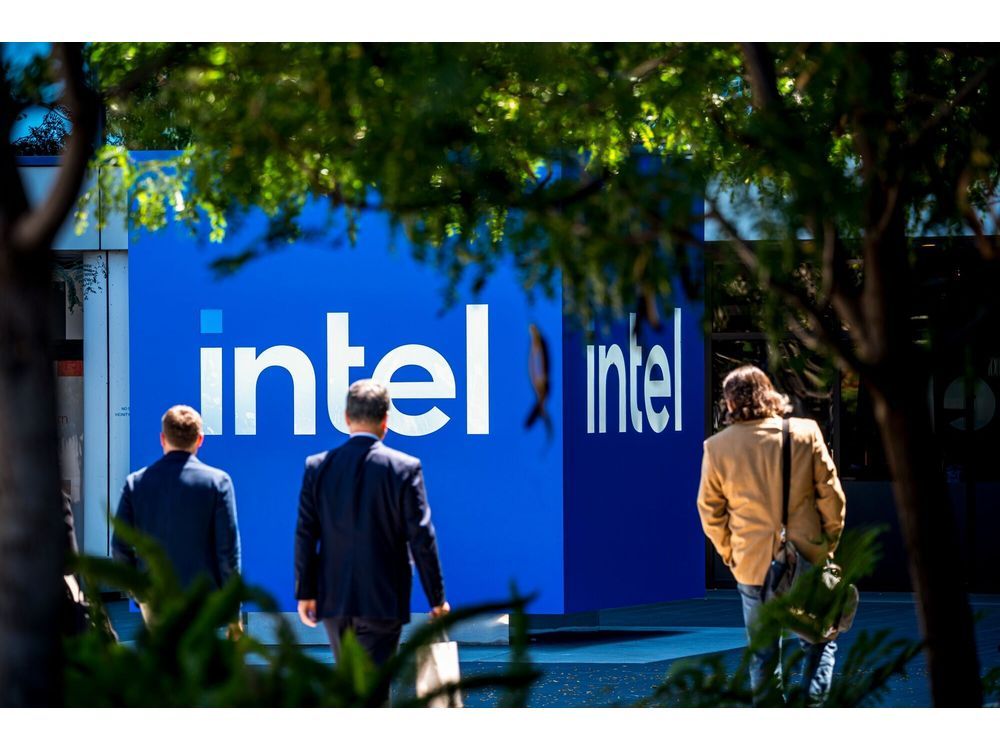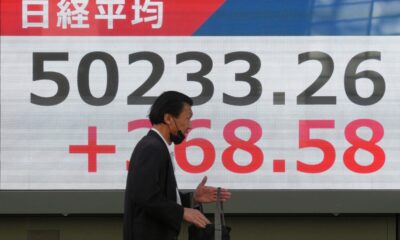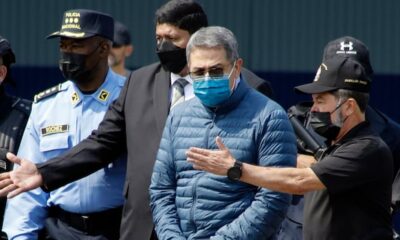Top Stories
Intel Secures Major Support from Trump and SoftBank for Revival

URGENT UPDATE: In a dramatic turn of events, Intel Corp. is on the brink of securing up to $10 billion in fresh capital, bolstered by support from the Trump administration and a significant investment from SoftBank Group Corp. Just days after President Donald Trump called for the resignation of Intel’s CEO Lip-Bu Tan, discussions are underway that could see the U.S. government take a 10% stake in the beleaguered chipmaker.
The proposed government stake could be realized by converting existing grants under the U.S. Chips and Science Act into equity, allowing Intel to navigate its financial challenges more effectively. This move comes as the company strives to recover from a series of setbacks in the competitive semiconductor market, particularly against rivals like Taiwan Semiconductor Manufacturing Co. and Nvidia Corp.
In a simultaneous development, SoftBank has agreed to invest $2 billion in Intel, aiming to leverage the chipmaker’s capabilities to enhance its role in the booming artificial intelligence sector. SoftBank’s founder, Masayoshi Son, sees potential in integrating Intel’s chip production with his ambitions to develop energy-efficient AI technology.
Intel’s shares experienced a surge of approximately 7% in pre-market trading following these announcements, reflecting investor optimism. However, SoftBank’s stock fell by 4% in Tokyo, demonstrating the volatility surrounding these high-stakes investments.
Earlier this month, Tan faced criticism and pressure to resign after Trump’s comments regarding alleged conflicts of interest. However, a quick meeting at the White House helped mend relations, with Trump later praising Tan’s professional achievements. This newfound support could be pivotal as the government considers its investment strategy, which would position the U.S. as the largest shareholder in Intel.
The discussions are still fluid, with the exact details of the stake—potentially worth around $10.5 billion—yet to be finalized. Kush Desai, a spokesman for the White House, noted that no official deal has been made public and that uncertainties remain regarding the specifics of the investment.
Intel has been grappling with falling behind in chipmaking technology, particularly in the lucrative AI segment. The potential government and SoftBank investments are seen as critical to revitalizing Intel’s production capabilities, especially at its ambitious Ohio facility, which had previously faced delays.
Despite the challenges, Tan has been focused on cost-cutting measures and restructuring, aiming to reposition Intel amid fierce competition. The company has yet to fully capitalize on its $10.9 billion in grants and additional $11 billion in loans available under the Chips Act, which aims to bolster American semiconductor manufacturing.
The urgency of these developments cannot be understated, as both the Trump administration and SoftBank view Intel’s revival as crucial to securing jobs and maintaining technological leadership in the U.S. semiconductor industry. With the stakes rising, all eyes will be on how the government and SoftBank’s investments will reshape Intel’s future and the broader tech landscape.
As this story develops, Intel’s ability to leverage this support effectively will determine its trajectory in the competitive semiconductor market. The coming weeks will be critical as investors and industry watchers await further updates from both the White House and Intel’s leadership.
-

 Politics4 weeks ago
Politics4 weeks agoSecwepemc First Nation Seeks Aboriginal Title Over Kamloops Area
-

 World5 months ago
World5 months agoScientists Unearth Ancient Antarctic Ice to Unlock Climate Secrets
-

 Entertainment5 months ago
Entertainment5 months agoTrump and McCormick to Announce $70 Billion Energy Investments
-

 Science5 months ago
Science5 months agoFour Astronauts Return to Earth After International Space Station Mission
-

 Lifestyle5 months ago
Lifestyle5 months agoTransLink Launches Food Truck Program to Boost Revenue in Vancouver
-

 Technology3 months ago
Technology3 months agoApple Notes Enhances Functionality with Markdown Support in macOS 26
-

 Lifestyle3 months ago
Lifestyle3 months agoManitoba’s Burger Champion Shines Again Amid Dining Innovations
-

 Top Stories2 months ago
Top Stories2 months agoUrgent Update: Fatal Crash on Highway 99 Claims Life of Pitt Meadows Man
-

 Politics4 months ago
Politics4 months agoUkrainian Tennis Star Elina Svitolina Faces Death Threats Online
-

 Sports5 months ago
Sports5 months agoSearch Underway for Missing Hunter Amid Hokkaido Bear Emergency
-

 Politics5 months ago
Politics5 months agoCarney Engages First Nations Leaders at Development Law Summit
-

 Technology5 months ago
Technology5 months agoFrosthaven Launches Early Access on July 31, 2025





















